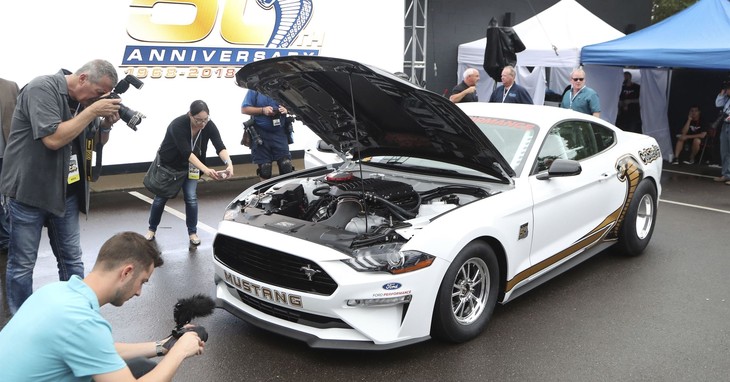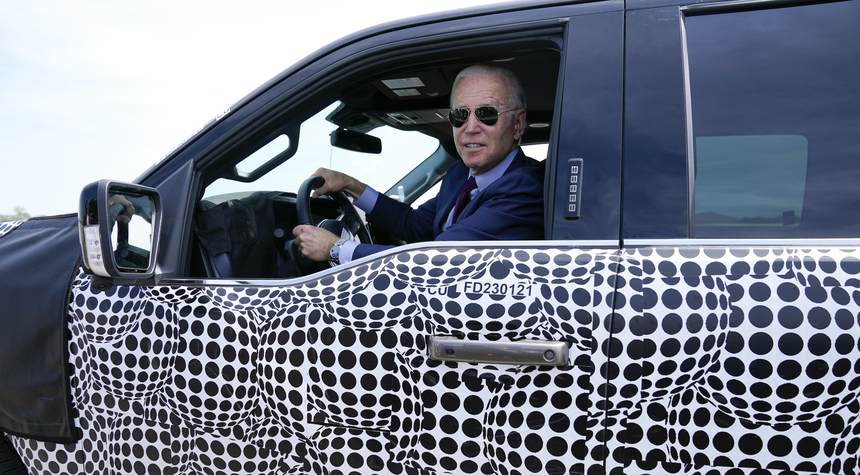Did Joe Biden Kill Off the Muscle Car? Dodge Announces the Finish Line For Two Iconic Vehicles
In another sign of Joe Biden being the resurgence of Jimmy Carter, Dodge ends its muscle car favorites.
The comparisons to Jimmy Carter these days have even exceeded the projections. Inflation? Check. Recessionary effects? Despite the pleading of the media, you betcha. Surging gas prices? Without a doubt when nearly two dollars higher is seen as a reason to breathe easier. Add in our weakened international stature and overall social malaise, and it is clear Joe Biden has certainly gone full retro in his brief tenure.
Now we can add another Carter-esque character trait to the list – we will see the demise of more of those American icons of the road, the muscle cars. In the late 1970s, the gas crisis and other influences saw many of the famed cars faded from showrooms. The Charger evolved into a luxury sedan (basically the Cordoba) and the Mustang became an economic option.
Today, we are seeing very similar economic forces in play, and once again these iconic American offerings are coming under fire. Between surging gas hikes and the administration putting dire pressure on the country to shift to more fuel-efficient electric vehicles, that means that the popular cars with an impressive power plant under the hood are about to be put up on blocks.
Dodge has made the announcement that by the end of 2023 the automaker will no longer offer for sale the Challenger and Charger models. The company will instead be transitioning to the production of EVs. Along with the urgency from politicians to move into electric, fuel economy and emissions standards have also dogged the company, so this is a result of mounting pressure placed on the industry.
Yet another factor is the carbon credits bill the company has had to fulfill. In Europe, the parent company had to pay over $360 million in annual offsets. For this reason, the company stateside is looking to convert more of its production to the manufacturing of EVs.
When Dodge resurrected the Charger and Challenger lines nearly two decades ago it sent a welcomed shockwave through the car industry that was seeing a return to this style of vehicle, as the two iconic nameplates from the 60s and 70s were seen as a return of American prowess on the asphalt. In this same era, the Plymouth GTO reemerged, as did the Ford GT, and others joined the fray with large engines and horsepower delivery. Established models like the Mustang and Corvette also saw a rise in prominence.
It might feel wrong to see this sector of the car market making the segue into all-electric, but the muscle car category is on that path. The Ford Mustang has produced an all-electric version for two years now, and it has earned its share of praise for managing to avoid comparison to the Prius and come very close to actual muscle car status. Dodge has announced that its version of an EV muscle car will arrive in 2024. The company has hedged on Charger or Challenger being applied to this next generation.

It remains to be seen if this is truly an end of an era, but at the very least a new generation of these cars is emerging. What remains to be seen is exactly how viable these will become in the coming years. It appears as if the automakers might be on the cutting edge; the question mark rest behind the concept of public charging availability.
Recently Wall Street Journal writer Rachel Wolfe detailed what it was like to make the round-trip from New Orleans to Chicago in a rented EV. Everything from the driving range to the quality and locations of charging stations was far from optimum. Some stations that are rated as Level-2 would take upwards of 8 hours of unplanned charging times.
It would seem the future of our driving is in the EV realm. The future has yet to arrive, at this time.





Post a Comment